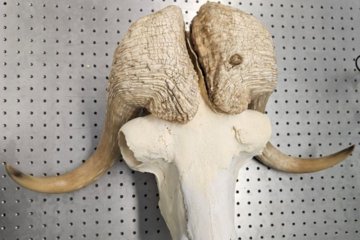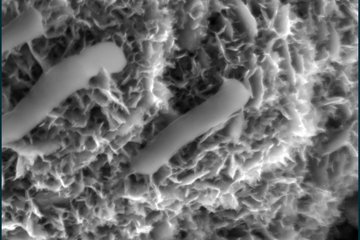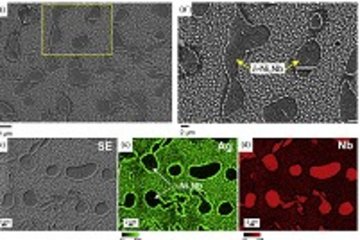All genres
41.
Talk
Coupling of magnetic and lattice degrees of freedom in magnetic Heusler alloys: Consequences for phase diagrams. Seminar at Materials Research Centre, Indian Institute of Science, Bengaluru, India (2017)
42.
Talk
Finite temperature excitation mechanisms and their coupling in magnetic shape memory alloys. The Materials Research Centre (MRC), Indian Institute of Science (IISc), Bangalore, India (2017)
43.
Talk
Impact of doping on the magnetic and structural transformations in magnetocaloric materials. DPG Spring Meeting of the Condensed Matter Section, Dresden, Germany (2017)
44.
Talk
Ab initio modelling of phase diagrams in magnetic Heusler alloys: achievements and future challenges. SUSTech Global Scientists Forum, Shenzhen, China (2017)
45.
Talk
Parameter-free Finite-temperature Computations of Stacking Fault Energies for Magnetic Materials. TMS Annual Meeting 2017, San Diego, CA, USA (2017)
46.
Talk
Parameter-free Computational Design of Magnetic Materials – Recent Advances in Ab Initio Techniques of Coupled Lattice and Spin Fluctuations. MRS Fall Meeting 2016, Boston, MA, USA (2016)
47.
Talk
Intermartensitic Phase Boundaries in Ni–Mn–Ga Alloys: A Viewpoint from Ab initio Thermodynamics. 5th International Conference on Ferromagnetic Shape Memory Alloys, Sendai, Japan (2016)
48.
Talk
Martensitic transformation in metamagnetic NiMnAl-based alloys: Insights for magnetocaloric properties. 2nd German-Dutch Workshop on Computational Materials Science, Domburg, The Netherlands (2016)
49.
Talk
Phase diagrams in magnetic shape memory alloys: Insights obtained from ab initio thermodynamics. The forty-fifth International Conference on Computer Coupling of Phase Diagrams and Thermochemistry, Awaji Island, Hyogo, Japan (2016)
50.
Talk
An ab-initio prediction of the off-stoichiometry of Fe–Mn–Al–C κ carbides. CALPHAD XLV, Awaji Island, Hyogo, Japan (2016)
51.
Talk
Intricacies of phonon line shapes in random alloys: A first-principles study. DPG Spring Meeting of the Condensed Matter Section, Regensburg, Germany (2016)
52.
Talk
Origin of the off-stoichiometry of Fe–Mn–Al–C κ carbides: An ab-initio explanation of atom probe tomography data. DPG 2016, Regensburg, Germany (2016)
53.
Talk
Impact of point defects on the phase stability in Heusler alloys: A first-principles study. DPG Spring Meeting of the Condensed Matter Section, Regensburg, Germany (2016)
54.
Talk
Ab initio explanation of off-stoichiometry in Fe–Mn–Al–C κ carbides. Intermetallics 2015, Bad Staffelstein, Germany (2015)
55.
Talk
Coupling of magnetic and lattice degrees of freedom in bulk materials. Magnetism Workshop, Fagerudd, Sweden (2015)
56.
Talk
Coupling of magnetic and lattice degrees of freedom in metals. Magnetism Minisymposium, Uppsala, Sweden (2015)
57.
Talk
The Itinerant Coherent Potential Approximation for phonons: role of fluctuations for systems with magnetic and chemical disorder. Materials Theory Group, Oak Ridge National Laboratory, Oak Ridge, TN, USA (2015)
58.
Talk
Thermodynamic phase stability in the Al–Sc system using first principles methods. 79th Annual Meeting of the DPG, DPG-Frühjahrstagung 2015, Technische Universität Berlin, Berlin, Germany (2015)
59.
Talk
Magnon-Phonon-Coupling in Fe. ICAMS Retreat 2015 , Soest, Germany (2015)
60.
Talk
The itinerant coherent potential approximation for phonons: Role of fluctuations for systems with magnetic disorder. 2nd German-Austrian Workshop, Kirchdorf, Austria (2015)











